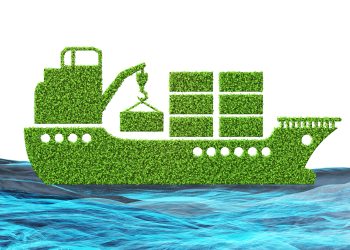During a meeting of the Council of Ministers, EU ministers adopted the priorities for the maritime transportation policy until 2020. Danish key issues were also reflected in the priorities and welcomed by Danish Shipping.
Climate change calls for global solutions, therefore the council stated clearly that climate change and environmental protection call for a global response. EU Ministers of Transportation expressed clear support for the IMO as the central international body for regulating shipping and welcomed the concrete roadmap which will sets out steps for an emissions reduction strategy for shipping in spring 2018.
“We are very pleased with the Ministers of Transporation’s support for the ongoing process in the IMO of reducing greenhouse gas emissions from shipping. Danish Shipping calls for an ambitious global agreement with a clear system in place to secure reductions. We believe that the European Parliaments’ calls for inclusion of shipping in the emissions trading system is an inappropriate approach, which will create more bureaucracy and less reduction of emissions than a global agreement,” says Casper Andersen, Director of EU Affairs at Danish Shipping in Bruxelles.
The priorities adopted by the Ministers of Transportation provide a clear focus on competitiveness and digitalisation as the points of reference. Additionally, the ministers clarify that there is full agreement with regard to the maritime state aid guidelines and their importance in ensuring a continuously successful European maritime hub that contributes to the European economy.
“There are visible imprints of Danish key issues in the conclusions of the ministers on a range of topics such as digitalisation and sustainable shipping as an efficient mode of transport, which we are very content with. We are especially pleased with the explicit recognition of the maritime state aid guidelines as a prerequisite for maintaining a competitive maritime hub in Europe. The next step is for the Commission to speed up on a new comprehensive EU-strategy for the maritime sector to replace the current one, which will expire by the end of this year,” says Casper Andersen.






























































